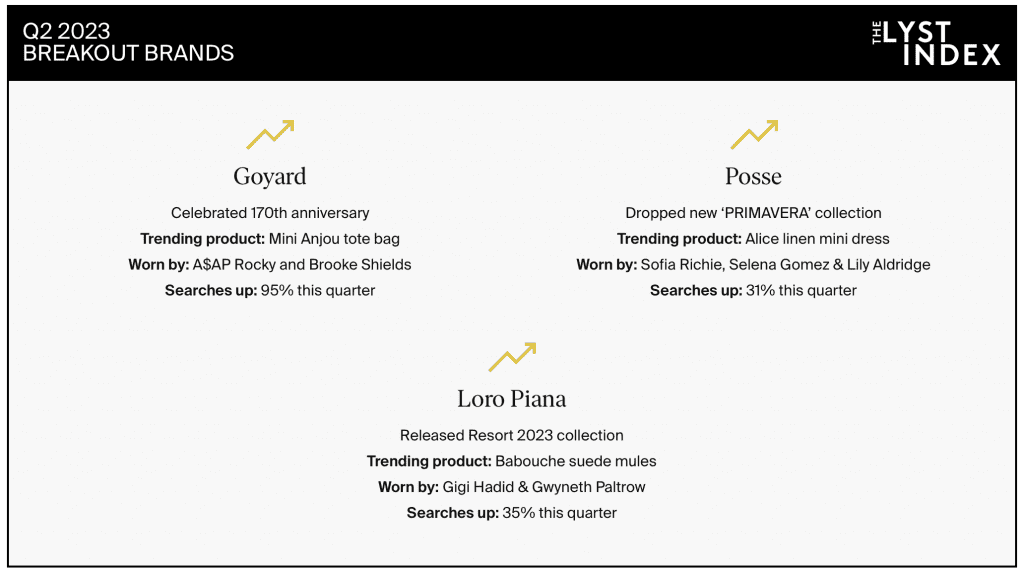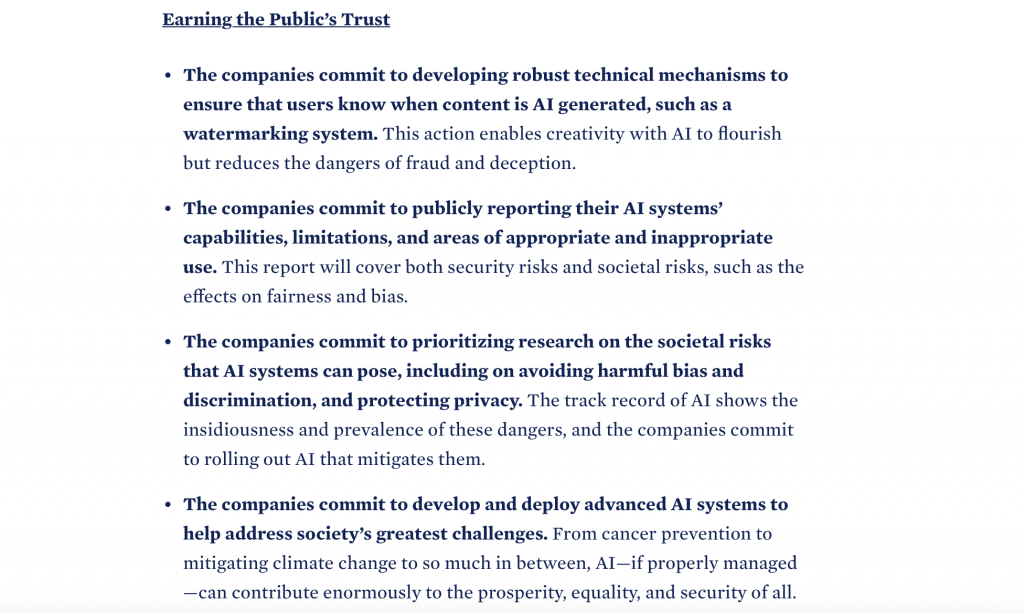“And just like that, stealth wealth, the aesthetic made viral by ‘Succession,’ with its toxic billionaires in their Loro Piana baseball caps and Tom Ford hoodies … has been swept off screen,” the New York Times’ Vanessa Friedman wrote recently. “In its place: logomania.” Friedman was referring to Season 2 of the “Sex and the City” reboot – “And Just Like That” – in all its branding-emblazoned glory.
It’s unclear whether “And Just Like That” has the same trend-making prowess of the original “Sex and the City” series, which played no small role in “changing the way” women dressed (as Vanity Fair previously put it) from 1998 – 2004 when the show first aired. However, if the reboot comes anywhere close to its predecessor in terms of trend-making might, the influx of branding in Season 2 – from Fendi logo-ed bags to bold Burberry checks – will be good news for big brands, which are in the business of selling logos & leveraging the goodwill imbedded in those logos (and other TMs) into pricing power & high-margin sales.
Case in Point: A Boohoo-commissioned study found that Pinterest searches for Fendi’s Baguette, which played no small role in Sex & the City and the spin-off, rose by 17% following the Season 2 premiere.
It’s worth noting that despite a rush of media takes on how “stealth wealth” has stood to negatively impact big brands, the potential that consumers might actually eschew ubiquitous logos has not appeared to be a major worry for luxury’s titans. LVMH management, for instance, shrugged of the trend in a Q1 call early this year, telling analysts that they did not see “quiet luxury” as a problem in large part because most consumers “will continue to favor products with logos.”
TLDR: Stealth wealth was likely not a major worry for luxury’s biggest names, and in fact, likely helped boost sales for other names under conglomerates’ umbrellas – like high-priced, textile-focused Loro Piana, which garnered attention on Lyst’s latest brand Index.

As for what might be worrying them a bit more: The fact that the $8.8B handbag market in the U.S. is “facing a generational dilemma.” New research from consumer behavior consultancy Circana paints something of a grim picture for handbag sales among women between the ages of 18 and 34. “The study found that more than 60% of women aged 35 & older report that they always carry a handbag for activities other than work or school,” WWD reported. That figure is down to 39% for women ages 18 – 34.
This downward trend could be significant for at least a couple of reasons: Luxury brands are banking on younger consumers for current sales (millennials & Gen Z accounted for all of the luxury market’s growth last year, according to a Jan. 2023 report from Bain) & for future growth. And second, handbags are responsible for a significant portion of most big brands’ revenues – as is the U.S. market.
The White House has secured voluntary commitments from Amazon, Anthropic, Google, Inflection, Meta, Microsoft & OpenAI to “help move toward safe, secure & transparent development of AI technology.” In addition to commitments focused on “ensuring products are safe before introducing them to the public” & “building systems that put security first,” the tech giants have agreed to commitments aimed at “earning the public’s trust” …

– Chanel v. The RealReal: The parties submitted a joint motion & stipulation to stay the TM infringement, counterfeiting & false advertising case. Since an initial mediation in Sept. 2021, TRR “requested that the Court order a settlement conference & discovery in this action has progressed the case has evolved such that the parties agreed that it is sensible to now conduct another mediation to attempt to amicably resolve this matter.”
– Vans v. Walmart: Vans cites SCOTUS’ opinion in Abitron in a new memo in opposition to Walmart’s motion for reconsideration of an order compelling discovery relating to sales in Canada, asserting that “while the Supreme Court’s decision in Abitron Austria v. Hetronic Intl. limits and clarifies the test for extraterritorial application of the Lanham Act, it does not preclude discovery into the facts and information necessary to apply that test.” (More about Vans v. Walmart here.)
– Getty v. Stability AI: A discovery-focused letter to the court from Getty provides a good snapshot of some of the jurisdictional complexities in its case against Stability AI, Ltd. & Stability AI, Inc. (Background on the case can be found here.)
– Kim Kardashian’s SKIMS has raised $270M in a Series C round, bringing the company valuation to $4B.
– South Korea’s leading fashion platform Musinsa has raised 240B won ($189.7M) in its Series C round.
– Etsy has entered into a quota purchase agreement to sell Elo7 to Enjoei S.A.
– There was quite a few notable web3-centric rounds this week. Among them, Whop, a “one-stop-shop for all the latest & greatest digital products,” has raised $17M in a Series A.
– DGG has raised €4M in a new round to build out its platform, which enables client to automatically upload 3D models of their products.
– Arrive Recommerce, which “powers resale for the world’s most innovative brands & retailers,” has raised $16M in a Series A.
– IMPACT+ has raised €2M in a Seed round to build its subscription-based platform, which measures the carbon footprint of digital ad campaigns.